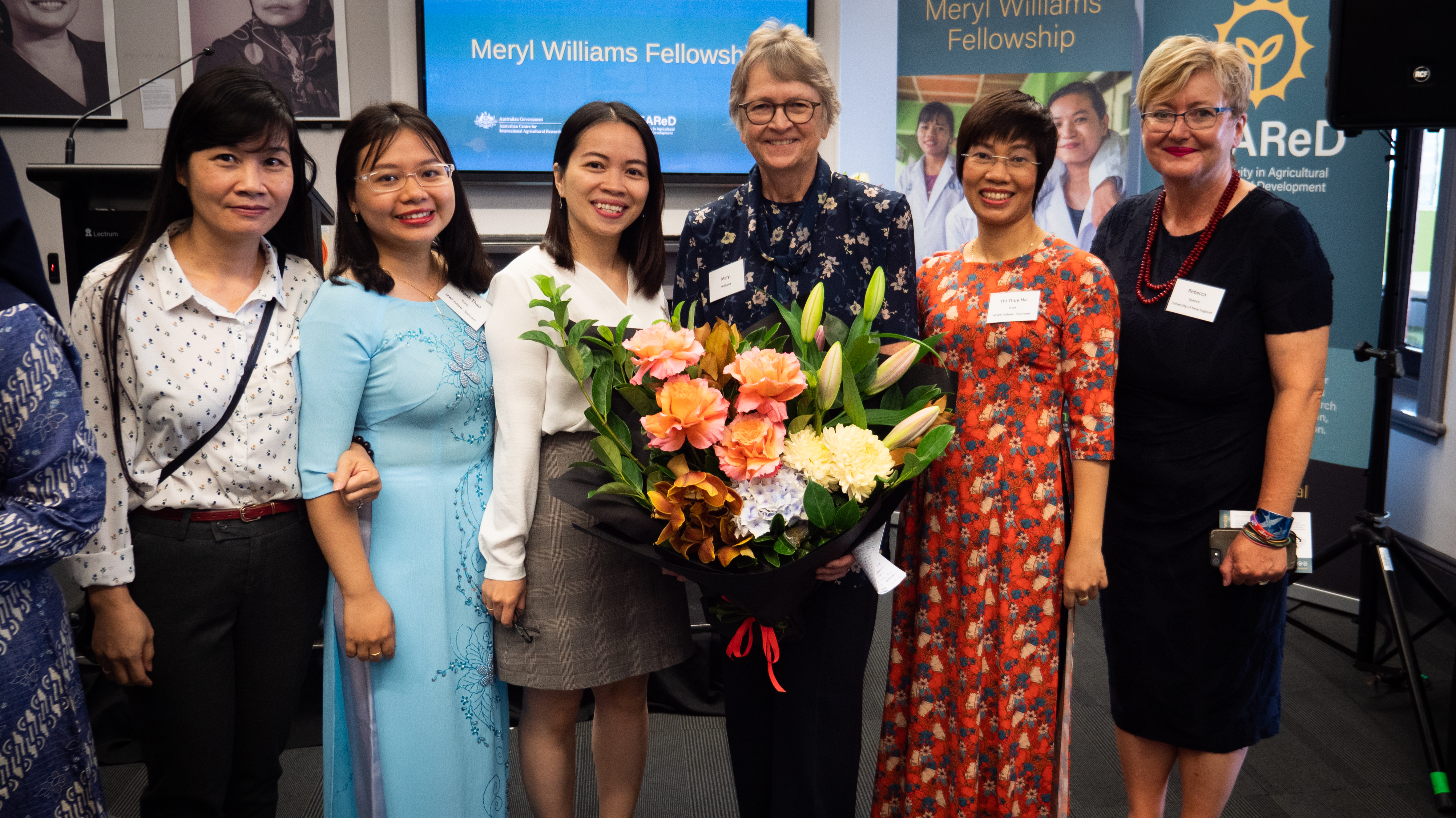Meryl Williams Fellowship: supporting the women supporting the Indo-Pacific

A new leadership program to strengthen the leadership and management skills of women working in agricultural research for development in the Indo-Pacific was launched on 3 February 2020.
The Meryl Williams Fellowship, is an initiative of the Australian Government’s agricultural research for development agency, the Australian Centre for International Agricultural Research (ACIAR) and is delivered in partnership with the University of New England (UNE).
“Through empowering influential women in agricultural science across the Indo-Pacific to play a greater role in their nations' policy and decision-making processes the Fellowship will ultimately improve food security and reduce poverty," said ACIAR Chief Executive Officer, Professor Andrew Campbell.
Under the Fellowship, groups of women with strong careers in agriculture-related research agencies across the Indo-Pacific, will undertake immersive training at UNE in management, workplace relations, career development and leadership. The participants will receive ongoing encouragement through a structured international mentoring program and work placements.
"Many of the organisations we partner with are overwhelmingly run by men, yet there are very talented women sitting in the middle ranks.
“There is plenty of empirical evidence from research funded by CGIAR, the Gates Foundation and other agencies, that tells us when women have equal access to resources and the decision-making process, there is an increase in agricultural productivity, meaning more income from product sales makes its way back to the household.
“Food security improves at a household and community levels, income rises at a greater rate, and nutrition improves.
"The Meryl Williams Fellowship is about creating enabling environments and developing cohorts of women leaders that can take on more senior leadership roles within their organisations – in particular in the agricultural research world, but also in policymaking environments, NGOs and industry. In any environment, including our own, we know that organisations perform better when they draw on the full range of skills available to them.""
UNE won a competitive tender process to run the Gender Equity in Agriculture Research and Development (GEAReD) training program, which will run concurrently with the ACIAR UNE-led John Allwright Fellowship Executive Leadership program for both genders.
Under the Meryl Williams Fellowship, 20 women from Papua New Guinea, Fiji, Vietnam, Cambodia, Laos and Indonesia have just undertaken their initial fortnight's training in Australia. The women come from across the spectrum of agriculture-related organisations, and include an aquaculture centre director, an agribusiness manager, a seed company researcher, and a sustainable palm-oil consortium manager.
UNE's Dr Rebecca Spence, who is leading the training, begins by making the Fellows aware of the values they bring to their work and life.
"Once the participants get a clear understanding of where their strengths lie and how their values align with, or complement, or diverge, from their team's values and workplace values, they can better understand why people around them act the way they do," Dr Spence said. "We also explore how gender is perceived in each country and what that means for practising leadership as a woman."
"The Fellows also learn to network, to support each other, and get a clear understanding of which strategies have worked for others in terms of navigating gendered workplaces and how they might apply them in their own workplace."
The Fellows are now returning to their workplaces where, over the next 15 months, they will complete a program of intensive workshops, mentorships, networking, online learning, and a career development placement or event. There will also be an institutional development workshop in Singapore – involving the participants’ employer organisations – that will explore potential gender bias in workplace cultures and how more inclusive cultures can be developed.
The Fellowship celebrates the work of outstanding Australian scientist Dr Meryl Williams, who over 40 years has been an influential researcher and administrator working in international fisheries, aquaculture, aquatic resource conservation and development.
A former director general of the WorldFish Centre, Dr Williams is a champion of women in research and gender equality.


